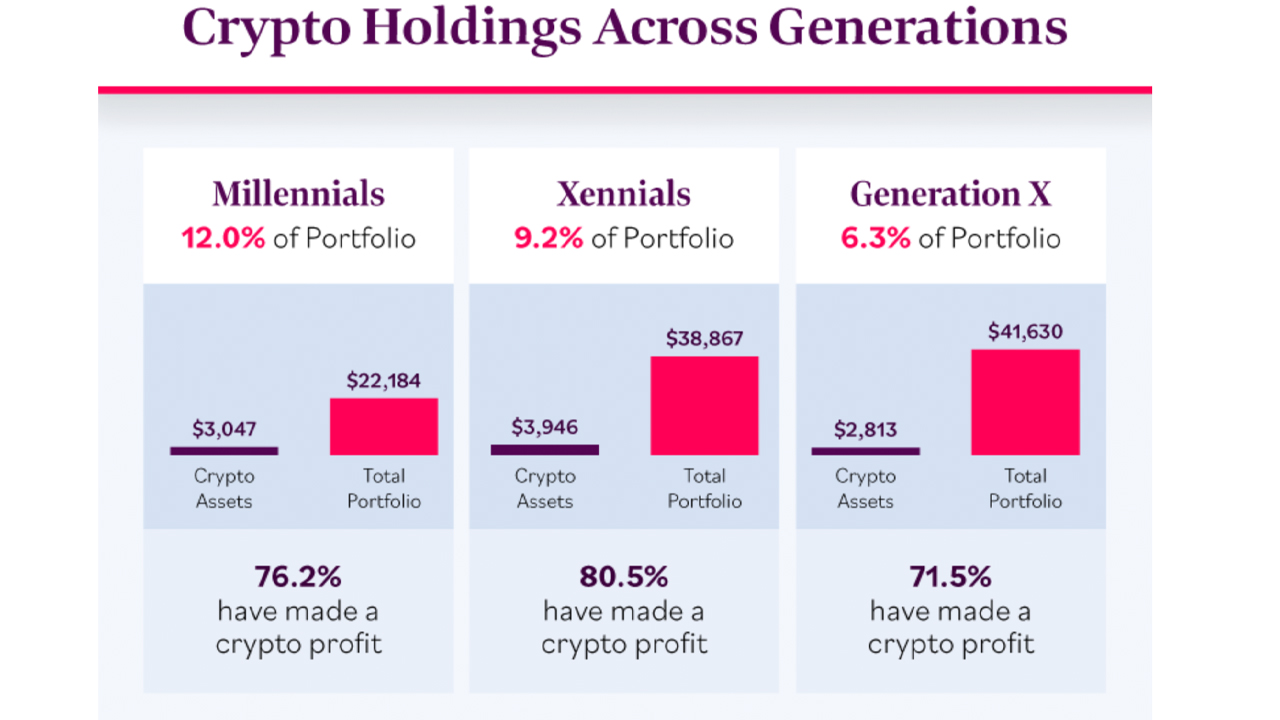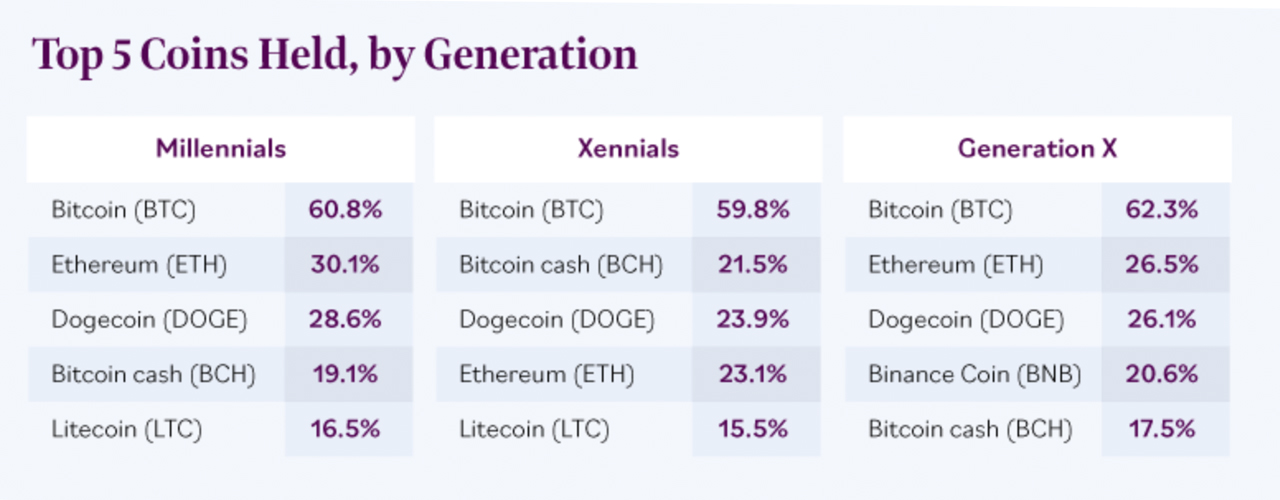3 in 4 Digital Currency Investors Have Profited
Following the recently published research by Cryptovantage concerning people forgetting their crypto passwords, the company published another poll surveying 1,044 people born between 1965 to 1997. The poll explains how millennials, xennials, and Gen Xers invest in digital assets. “The popularity of crypto assets varied by age,” the new Cryptovantage report called “Generational Philosophies on Investing in Crypto,” explains.

“Crypto-assets represented 12% of the average millennial portfolio, compared to 9.2% of the average xennial portfolio and only 6.3% of the average Gen Xer portfolio,” the study details. “Despite this larger proportional holding, millennials were not the most likely to report making a profit in cryptocurrency investing. Xennials, with the largest total investment, were the most likely to make a profit off crypto assets at 80.5%, compared to 76.2% of millennials and just 71.5% of Gen Xers.” The survey adds:
It’s worth noting that 3 in 4 people profited off cryptocurrency investments overall.
Bitcoin Is the Most Popular Digital Asset, Xennials Prefer Bitcoin Cash, Dogecoin
The survey indicates that across all the generational participants, bitcoin (BTC) was the most popular and besides BTC, Millennials and Gen Xers preferred ethereum (ETH). Xennials, on the other hand, chose bitcoin cash (BCH) and dogecoin (DOGE) over ETH. Most of the Millennials chose to leverage services like Coinbase and a number of xennials prefer services such as Bitcoin IRA.

While the report notes that the lion’s share of participants detailed that “curiosity” was the main reason for investing, the second most popular reason was for high profits. Roughly 39% of the 1,044 respondents also explained that Elon Musk was beneficial to the cryptocurrency ecosystem.
“Xennials were the most likely to start investing in cryptocurrencies because they believed they offer security and transparency and will give them greater independence,” the Cryptovantage report author wrote. “Gen Xers were the least likely to believe those same ideas; however, they were more likely than both millennials and xennials to view cryptos as the currency of the future.”











